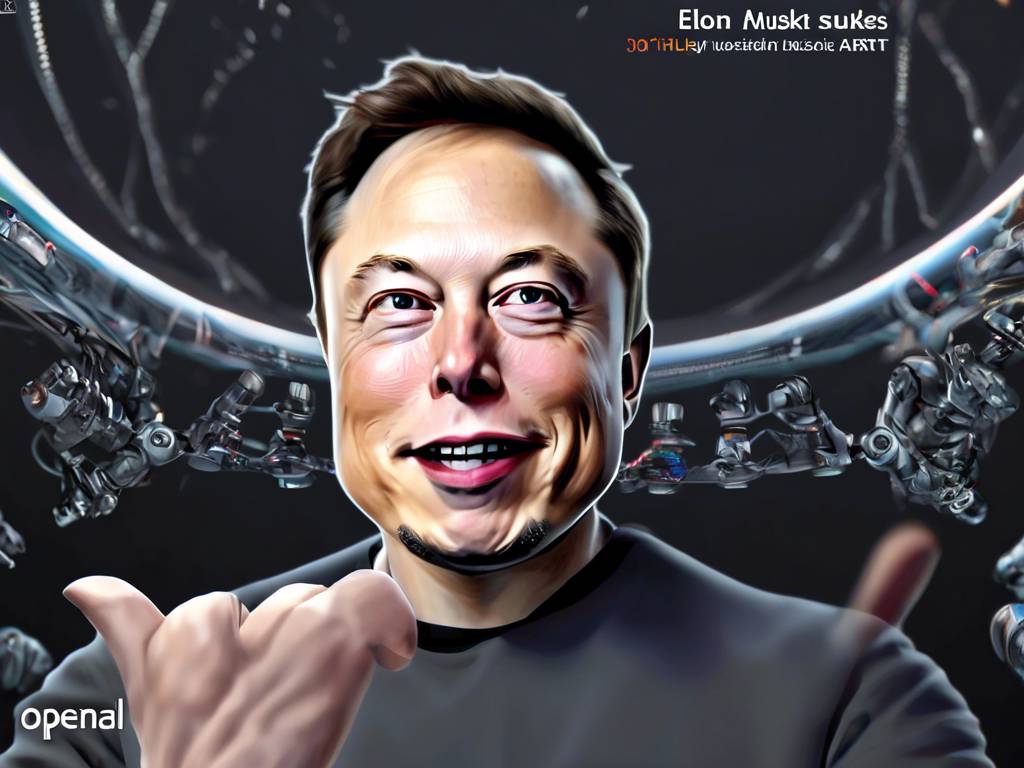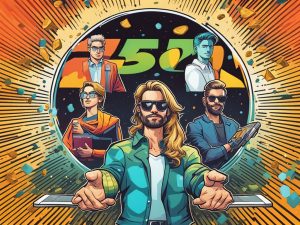**Elon Musk’s Legal Battle with OpenAI and Altman**
Elon Musk’s ongoing lawsuit against OpenAI and Sam Altman, which began a year ago, is the result of a long-standing concern about the potential risks of artificial intelligence (AI) getting out of control. The relationship between Musk and Altman dates back to 2012 when Altman, who eventually sold his company DeepMind to Google, visited Musk at SpaceX and warned him about the existential threat posed by AI. Musk, who takes such threats seriously and sees himself as a superhero, co-founded OpenAI with Altman with the intention of making AI research open-source and non-profit.
**The Origins of the Dispute**
– In 2012, Elon Musk and Sam Altman founded OpenAI as a response to the potential risks of AI.
– Altman’s warning about the dangers of AI motivated Musk to take action and establish OpenAI.
– Musk’s belief in the importance of keeping AI research open-source and non-profit drove the founding principles of OpenAI.
**The Evolution of the Conflict**
– The dispute between Musk and Altman escalated when Altman decided to change the status of OpenAI to a for-profit organization.
– Musk’s lawsuit against Altman is based on the premise that OpenAI should adhere to its founding principles of being open-source and non-profit.
– The lawsuit is not seeking monetary damages but rather aims to ensure that OpenAI remains true to its original mission.
**Legal Implications and Future Prospects**
– The lawsuit raises questions about the governance and ownership of OpenAI and the role of its founders in shaping its direction.
– Musk’s insistence on maintaining the open-source and non-profit nature of OpenAI reflects his commitment to preventing AI from becoming a controlled and potentially dangerous entity.
– The outcome of the lawsuit will likely have ripple effects on the future of AI research and development and the ethical considerations surrounding its use.
**Interpreting the Legal Landscape**
– Musk’s lawsuit against Altman is rooted in a desire to uphold the founding principles of OpenAI and prevent it from straying from its original mission.
– The lack of formal founding agreements has complicated the legal proceedings, but Musk’s determination to hold Altman accountable remains steadfast.
– The lawsuit highlights the challenges of governing emerging technologies like AI and the importance of ethical considerations in their development.
**Hot Take: Closing Thoughts on the Legal Battle**
In conclusion, Elon Musk’s lawsuit against OpenAI and Sam Altman underscores the high stakes involved in the development and governance of artificial intelligence. Musk’s commitment to ensuring that AI research remains open-source and non-profit reflects a broader concern about the potential risks of unchecked AI development. As the legal battle continues, the implications for the future of AI research and ethics are significant, highlighting the need for clear governance structures and ethical guidelines in the field. Musk’s actions serve as a reminder of the importance of responsible innovation and the need for transparency in shaping the future of AI.





 By
By
 By
By
 By
By

 By
By